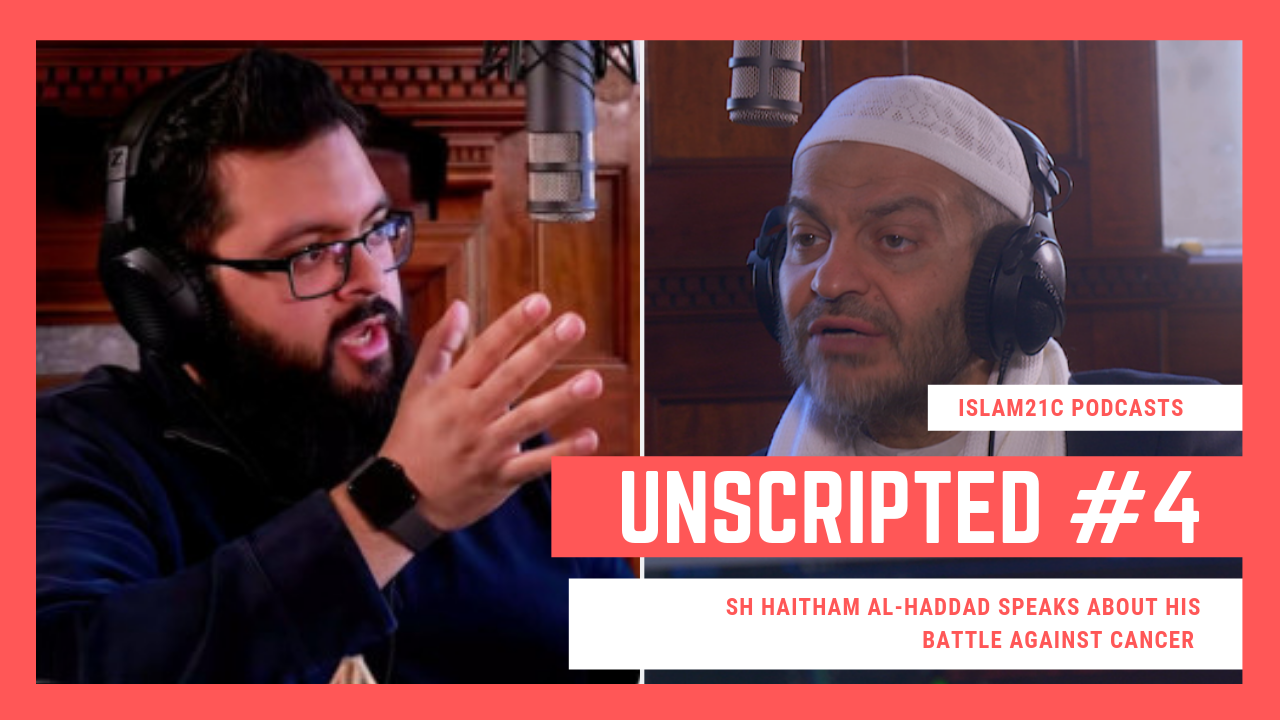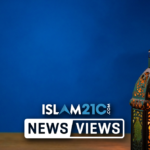Shaykh Dr. Haitham al-Haddad is a jurist who seeks to contextualise classical Islamic knowledge for the modern era. He is a firm believer that Islam is uniquely qualified — more than any other system — to build a divine civilisation capable of helping humanity to enjoy a better life in all spheres by maintaining the correct balance between the rights of the Creator and the rights of the creation. He believes Islam is the only viable alternative to the failing unjust and oppressive contemporary world systems, as Allah says: "You are the best nation produced [as an example] for mankind: you enjoin what is right, forbid what is wrong, and believe in Allah." (al-Qur'ān, 3:110) According to this verse, Shaykh Haitham identifies the pillars of Islamic reform as īmān (faith), unity of the Ummah, impactful action, and knowledge. Drawing from his expertise in Islamic principles — Usūl al-Fiqh, Maqāsid al-Sharī‘ah, ‘Aqīdah, and other Islamic sciences — he promotes these foundational pillars to guide the Ummah’s revival. He is known for developing advanced theories that explore the role of Islamic jurisprudence in obtaining solutions for the contemporary challenges facing humanity, and he critically re-evaluates how Islamic legal rulings (fatāwa) can be formulated in light of modern sociopolitical realities. Shaykh Dr. Haitham al-Haddad earned his PhD from SOAS, University of London, with a doctoral thesis on Islamic jurisprudence concerning Muslim minorities. He also holds a bachelor’s degree in Sharī‘ah and Law from the University of Omdurman, Sudan, and a degree in engineering from the renowned King Fahd University of Petroleum and Minerals (KFUPM) in Saudi Arabia. He has undertaken intensive studies in management, becoming a certified ISO 9000 auditor. In addition, he has studied various Islamic sciences under leading scholars of the Muslim world, including the former Grand Mufti of Saudi Arabia, Shaykh ‘Abdul-‘Aziz ibn Baz, among many others. He has obtained many classical ijāzāt in various Islamic sciences, including Qur'ān and Hadīth. Shaykh Haitham has served as an Islamic judge for several UK-based arbitration and legal bodies for over 20 years; he is a judge at Islamic Council. He has delivered hundreds of courses on topics such as Fiqh, ‘Aqīdah, Usūl al-Fiqh, Maqāsid al-Sharī‘ah, Tafsīr, Sīrah, Islamic Thought, Islamic Leadership and Management, Da'wah, Reform, and Political Engagement. Shaykh Haitham has also submitted many academic papers in many universities around the world. He is frequently consulted by numerous Islamic organisations across Europe and beyond, and serves as a senior scholar at Islam21c. Shaykh Haitham has lectured in various universities around the Muslim world, provided counsel to Islamic institutions, authored several books and textbooks for different institutions, and travelled extensively to advocate for the reform and unity of the Ummah.







Alhamdulillah, tabarakAllah. Thank you dear sister for sharing your experiences that you had whilst in hospital. May Allah subhanahu wa ta’ala bless you, protect you and reward you immensely for calling out to the only One who listens and answers the call of the distressed and needy soul. Aaaaaaaameeeen !!!
Maa’sha’Allah it’s very nice to the Sheikh looking so well, alhamduillah.
I’d just like to say one thing regarding pain, I’ve had cancer and major surgery to remove it. I also didn’t take pain killers, must admit it didn’t go down well by the staff, you do feel pressurised somewhat. But I stood my ground, and I didn’t sleep at night due to the pain, so I used to sit in the chair. And one night the night staff called a Muslim doctor to come and speak to me, he reminded me that I had a duty upon my body and Allah allows pain relief. But I said, I bother nobody, I am not making any noise or crying due to pain, I’m just sitting in a chair! I was in a lot of pain, but pain is natural and the drugs they give you are not.
When I woke from surgery I was attached to a morphine machine, and it’s caused hallucinations, so the next day I had it removed. They sent pain specialists to try and convince me to keep it, but you can’t pray with these drugs. A person can’t think straight. It took me 3 days after removing the morphine to just remember ayat al kursi and some surah to pray with. I’d get half way through and forget, it took 3 days and when I explained this to the Muslim doctor they sent to speak to me, he got emotional and apologised and left.
At this time during tests we are close to Allah Ta’ala and I remember making certain dua’a at night in that chair in the dark, just me and Allah Ta’ala and then I when I saw those same dua’a answered, I cried because I remembered those nights with such gratitude. I’d never been to the on Hajj or Umrah and one was “Oh Allah will I never see your House?” I recovered all praise to Allah, He blessed me with a wonderful husband who took me on Umrah two weeks after the marriage. There were so many blessings in those nights, I no longer feel the pain but I live daily with the blessings that came from it.